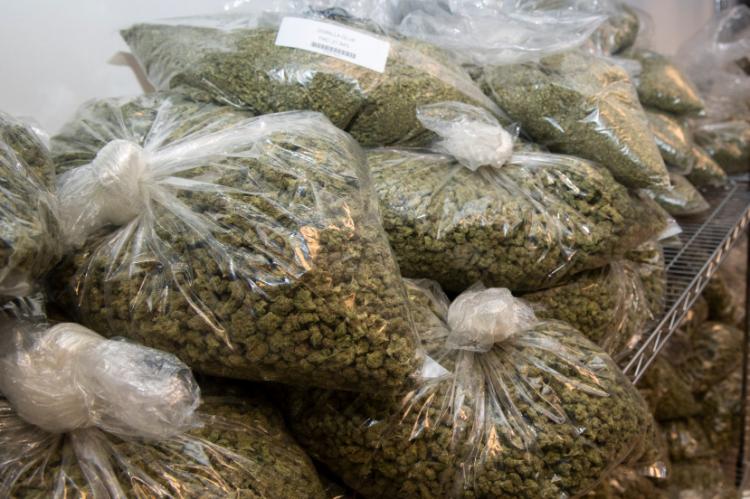California agency recommends major overhaul to state’s cannabis taxes
California’s struggling cannabis industry didn’t get the recommendation many hoped for — a call to sharply lower the industry’s tax rate — but a long-awaited state report did suggest a marijuana tax overhaul.
The report from California’s nonpartisan Legislative Analyst Office, released Tuesday, Dec. 17, says lawmakers should ditch the way the state currently taxes marijuana and, instead, tax cannabis at different rates based on its potency. Such a tax structure, the report said, would result in stable revenue and discourage cannabis abuse.
The report — the first of its kind since voters legalized cannabis three years earlier — also recommends California quit making licensed cultivators pay a tax based on the weight of marijuana they grow.
But the report stopped short of promoting what licensed operators and industry advocates want most: an immediate drop in the state’s 15% tax rate.
Instead, if the state keeps its current tax plan, the agency actually suggests an increase of up to 5%. Otherwise, LAO analysts say California risks taking in less than the $350 million in annual cannabis tax revenue needed to fund all programs mandated by the legalization bill, Proposition 64.
“I’m flabbergasted that the LAO would consider increasing state taxes from 15% to 20%,” said Ellen Komp, deputy director of the advocacy group NORML’s California chapter. “We expected them to recommend, or at least discuss, the benefits of lowering the state tax.”
The report noted that without a lot of historical tax data from the fledgling industry, it’s up to lawmakers to prioritize what they hope to achieve through any cannabis tax.
For example, the report says dropping the tax rate could hurt the state’s illicit cannabis market, which is about three times bigger than the current licensed market. But a lower tax rate also might promote cannabis abuse, and mean less money for cannabis-related education, research and other programs.
Assemblyman Rob Bonta, D-Oakland, who introduced a failed bill in 2019 that would have temporarily reduced marijuana taxes, said the report offers a clear bottom line: “The status quo is not working.”
“In states with more supportive regulatory conditions, we’ve seen the illicit market make up less than 30% of all sales, unlike in California, where about 75% of cannabis sales occur in the illicit market,” Bonta said.
While he was happy to see analysts recommend dropping the cultivation tax, Bonta believes California needs to cut the excise tax if the industry “is to survive, let alone thrive.” He said he plans to reintroduce legislation to do that next year.
The Legislative Analyst’s Office instead recommends an approach some healthcare experts have long promoted: taxing cannabis products based on their level of THC, or the compound that makes consumers high.
Komp with NORML said such a plan might hurt medical cannabis patients, who often need higher potencies.
California’s current 15% tax rate is in line with or below the tax imposed in other states that have legalized recreational cannabis. But in California, the state excise tax is just part of the bill. The state also imposes up to 10% in sales taxes on nonmedical cannabis. Cities that permit cannabis operations typically impose local taxes of 5% to 20%. And cannabis growers pay a state levy of $9.25 per ounce for dry flowers or $2.75 per ounce for leaves.
In all, the report found that legal cannabis in California is taxed at an effective rate of 40% and up, about as much as hard liquor. Those numbers will go up soon, though, as the state has announced it will increase cannabis excise taxes by 12.5% and cultivation taxes by 4% come Jan. 1.
The state’s taxes make it hard for licensed cannabis operators to match the prices offered by unlicensed competitors. In recent months, the industry has cut hundreds of jobs.
Industry advocates were disappointed that Tuesday’s report didn’t provide clear ammunition to push for lower taxes. But they were encouraged by some other recommendations, such as a call to collect taxes directly from retailers rather than the current practice of having distributors pay up.
Such changes line up with requests the California Cannabis Industry Association has been pushing for several years. Agency spokesman Josh Drayton said his group is hoping to work with lawmakers on more comprehensive tax reform in 2020.
- Log in to post comments

